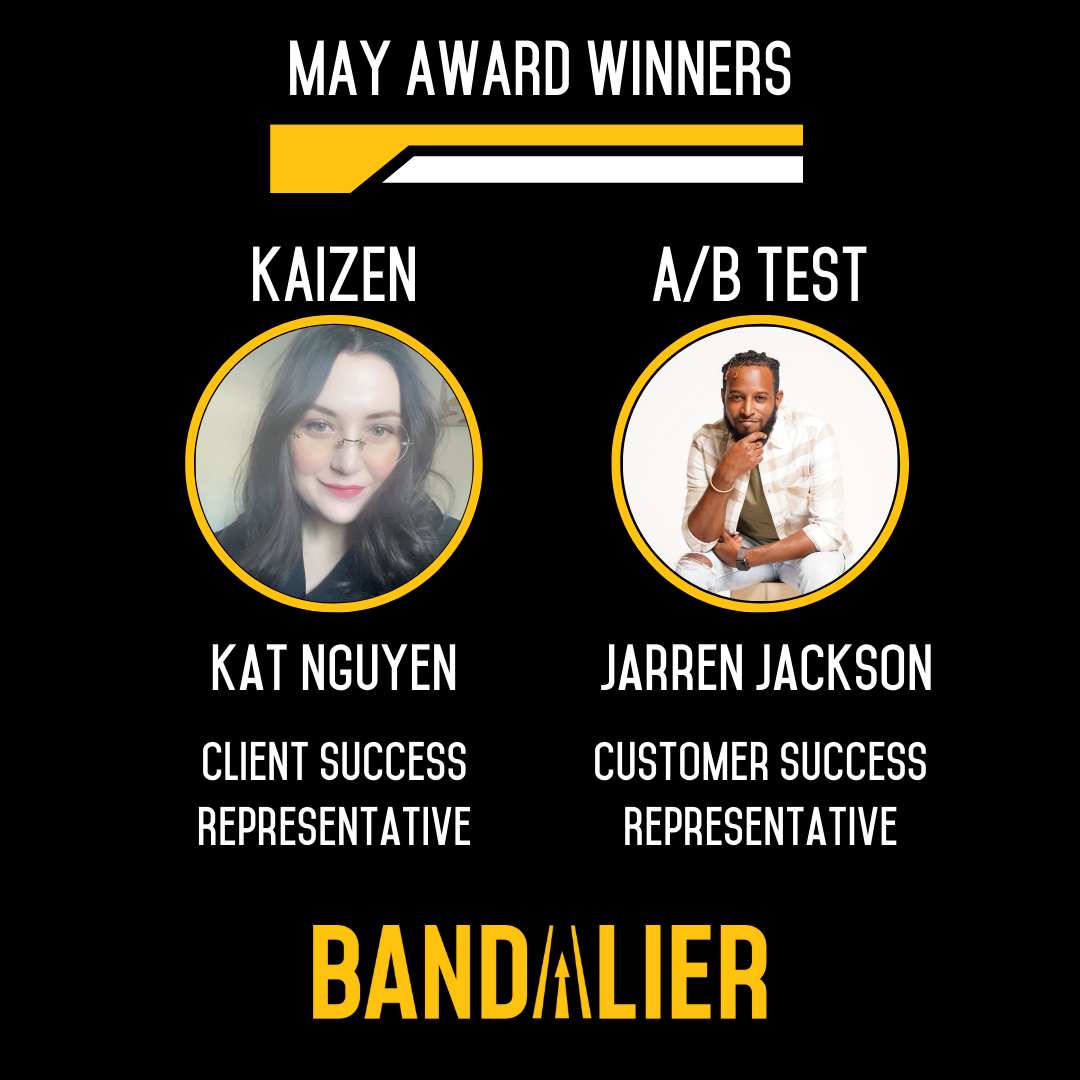10 Crucial Questions to Ask in SDR / BDR Interviews
The perfect Sales Development Representatives (SDRs) and Business Development Representatives (BDRs) are out there—it’s just a matter of finding motivated candidates with versatile skills. As anyone in the industry may tell you, successful sales positions require social expertise, a way with words, and a certain X factor that can be difficult to nail down. At Bandalier, we’ve got years of expertise finding the best-suited, outsourced SDR or BDR candidates for the job and connecting them with like-minded businesses. Here are the crucial interview questions to ask when hiring an SDR/BDR.
1. What is your sales experience?
It’s a classic interview question for a good reason; a lack of professional experience is a well-known concern for most sales organizations. For a specialized industry like sales, it makes sense that the more experience a potential employee has, the more value they may bring to your company.
That being said, backgrounds in other client-facing or customer service roles can be just as valuable as someone with direct SDR/BDR experience. In Bandalier’s experience, folks who worked in hospitality or entertainment industries take quickly to sales. As another example, we’ve seen successful team members with experience in retail, education, and a wide variety of other fields.
Of course, relevant work is a significant consideration, but keep in mind that extensive sales experience can be a double-edged sword. Don’t be too afraid of an SDR or BDR that’s just starting out. Some of the best and brightest talents available in the industry are the new ones on the block. Either way, this is a key interview question. It’s important to know a candidate’s background in order to envision how they would fit within your organization.
2. Have you used sales tools such as CRMs and prospecting software?
Even if a prospective SDR/BDR has limited first-hand sales experience, they might be familiar with Customer Relationship Management (CRM) tools and other sales software. These tools are central to most sales systems, and that’s why we have training for a wide variety of platforms available through Bandalier University. An ability to familiarize themselves with the necessary technology and use it on an everyday basis are skills that SDRs and BDRs need to thrive in a sales environment.
3. How do you identify and qualify leads?
This question may seem obvious, but it’s an effective way to get a feel for the candidate’s understanding of the process. After all, the job description of an SDR or BDR is centered on identifying the right leads and ensuring they are qualified. Asking this question also gives the interviewee a chance to showcase their own unique process and how it would bring value to your organization.
4. How do you personalize your pitch to a client?
When it comes to making connections, the right applicant must be knowledgeable and skilled. This question allows the candidate to display their personal style and acuity when it comes to pitching. If an SDR or BDR is able to connect personally with a potential client, that’s a massive step towards a long-term business connection. Only about 13% of clients believe that a sales person can understand their needs, so it’s fundamental to know how to maintain natural conversation, make a prospect or client feel comfortable, and tailor your pitch to address the heart of their priorities.
5. How would you appeal to the target audience for our company?
This question provides a closer look at how a potential SDR/BDR perceives and understands your target audience. On top of that, it’s a great way to gauge whether or not the interviewee has done their homework on your company. Their answer and level of preparedness may also provide insights as to how thoroughly they’ll prepare for calls and research prospective clients before contacting them.
6. How do you address common objections?
A salesperson can be charismatic, friendly, and professional, but if they’re not able to keep calm under a client’s scrutiny, they probably won’t be successful in the long term. A valuable skill is working effectively under pressure, and this interview question shows how well a candidate can anticipate objections, address them, and manage client relationships.
Real-life experience is the best way to learn how to handle client objections, so finding a prospective sales or business development rep who has been in that situation before and developed these exact skills may be less common. This is where proper training comes in. At Bandalier University, we use small group work sessions with roleplay objection handling to train all of our outsourced SDRs and BDRs in handling objections and challenging conversations, so they’re ready to hit the ground running.
7. What makes an SDR or BDR stand out?
If an SDR or BDR understands what skills really count, they’re far more likely to succeed, even if they haven’t perfected them at the time of the interview. A self-aware candidate who can communicate their strengths and weaknesses will be better for your organization in the long-run, as they’re much more likely to improve as time goes on, embodying a core principle we champion: kaizen.
To us, the opportunity for continual growth and development is one of the benefits of outsourcing sales and business development—it starts with finding promising talent and from there, helping them hone their skills sets them up for ample success in the professional world. Ultimately, your business benefits.
8. What’s your favorite part about a customer-facing role?
The best employees are the ones that enjoy their work. To represent your product well, your SDRs and BDRs should keep their conversations genuine and bring positive, thoughtful energy to every aspect of their job. This question allows potential SDRs and BDRs to express their passion for what they do.
9. Can you give an example of a pitch?
It’s essential to have a potential SDR/BDR give you a practice pitch during an interview. By enabling them a space to sell your own product back to you, you can witness their sales skills up-close-and-personal and explore how well they embody your brand tone, personality, and values.
10. How do you take constructive feedback?
What’s more important than the ability to deliver a perfect pitch upfront? The ability to learn and evolve.
By offering a candidate notes on their practice pitch and allowing them to respond and adjust, you can see how well they respond to feedback. Even if their first sales pitch doesn’t blow you out of the water, their ability to think on their feet and revise their pitch according to feedback might surprise you. This valuable skill may prove them a more beneficial addition to the team than a static sales rep who’s set in their ways or unwilling to revisit their tactics.
Catch the hidden gems with the right questions
Hiring the right candidate can feel difficult and time-consuming. It takes a careful, trained eye to sift through applicants and find the best SDR/BDR for your team. Knowing what questions to ask will give you a more comprehensive understanding of who your candidates are and their skill sets.
Outsourced SDR/BDR services can help you build your business faster by vetting the best candidates and connecting you with them directly. At Bandalier, our experts find the most promising representatives, sharpen their skills with our immersive training program, and connect them with the organizations that benefit from their expertise the most.
If you’re looking to grow your team, click here to learn more about our process and how we can help you find the top-notch talent you’re looking for.














